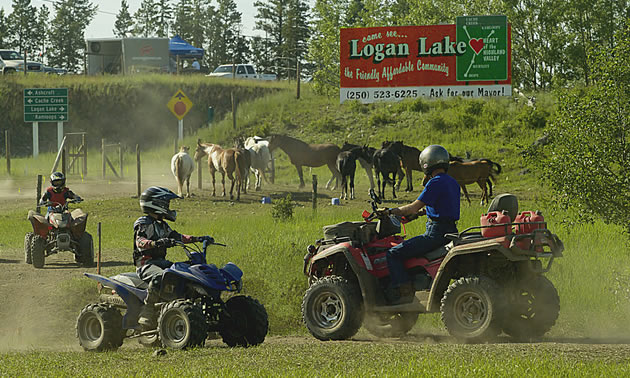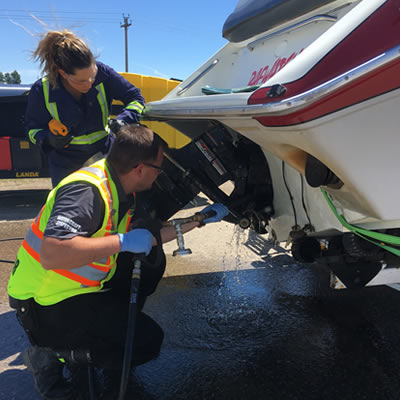Tougher off-road vehicle rules and new fines to reduce wildfire risks

Effective immediately, the British Columbia government has increased some wildfire-related penalties up to $100,000, to assist with fire prevention and discourage irresponsible off-road vehicle use, Doug Donaldson, Minister of Forests, Lands, Natural Resource Operations and Rural Development, announced today.
“These changes reflect the tougher stand that our government is taking to eliminate unnecessary wildfire risks, encourage compliance, protect communities from harm and help keep British Columbians safe,” said Donaldson.
Spark arrestors required for off-road vehicles (ORVs):
- All off-road vehicles are now required to have a spark arrestor installed to reduce wildfire risks when operating on Crown land. A spark arrestor is a small screen or other device that is installed in an exhaust system to stop sparks or other exhaust residue from exiting the tailpipe.
- Many new models of ORVs already have a spark arrestor. Owners of older models that do not have spark arrestors will need to get them installed if they wish to operate the ORV on Crown land.
- A contravention could result in a violation ticket fine of $460 or an administrative monetary penalty of up to $10,000 if an ORV without a spark arrestor is operating at a time or place where there is a risk of a wildfire starting.
- If a wildfire starts, the operator could receive a violation ticket fine of $575, an administrative monetary penalty of up to $10,000, or a court fine up to $1,000,000 and/or up to three years in jail. The person responsible could also be ordered to pay all firefighting and associated costs.
Increased or additional fines for wildfire-related infractions:
- The Wildfire Regulation has been amended to add a new administrative monetary penalty up to $100,000 for violations related to utility transmission operations. Examples would be when a wildfire is started by a downed power line, or when vegetation near a utility line has not been adequately maintained and a tree falls on an energized line, starting a fire. Similar provisions are in place for other industrial activities, so this amendment makes the Wildfire Regulation consistent across the sector.
- The Wildfire Regulation has been amended to add a new administrative monetary penalty up to $10,000 for not complying with a stop-work order. This change will give the Province additional compliance and enforcement options to deal with people who continue to engage in a high-risk activity after a stop-work order has been issued.
The Violation Ticket Administration and Fines Regulation has been amended to increase three fines for contraventions of the Wildfire Act. The cost of a contravention will increase from $767 to $1,150 for:
- failing to comply with restricted area requirements;
- failing to comply with an order restricting an activity or use; and
- failing to comply with an order to leave a specified area.
Follow the latest B.C. wildfire news:
On Twitter: http://twitter.com/BCGovFireInfo
On Facebook: http://facebook.com/BCForestFireInfo








